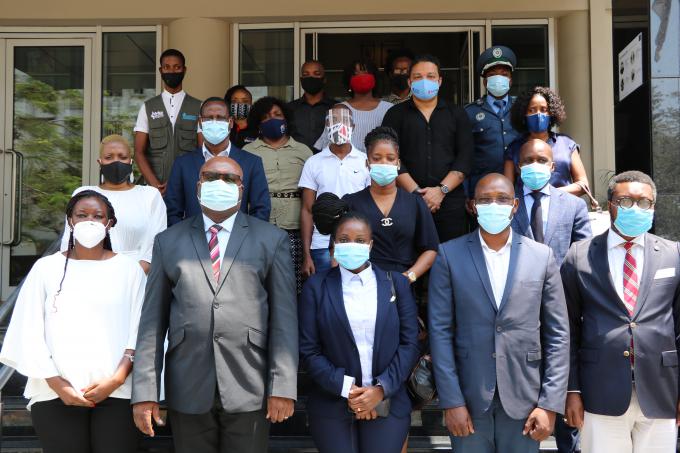Save the Children supports Civil Society UPR reports
|
Last week was of a great joy for Mozambican Civil Society, especially for those working in the area of children's rights. The feat is due to the submission of three (3) thematic reports to the Office of the United Nations High Commissioner for Human Rights under the Universal Periodic Review (UPR) mechanism, in a process that had the support and participation of Save the Children. The first report was submitted by the 3R platform, which brings together the main networks of organizations working in the field of children, namely the Child’s Network (Rede da Criança), the Network Against Sexual Abuse of Minors (Rede Came) and the Civil Society Forum for the Rights of the Child (ROSC). A second report was submitted by the Coalition for the Elimination of Child Early Marriages (CECAP) and the third by FAMOD - Forum of Mozambican Associations of People with Disabilities. The Universal Periodic Review mechanism is a unique process, which involves a review of the human rights situation of all United Nations Member States and with the particularity of being able to receive, from a single country, different thematic reports on human rights, hence the three different documents submitted. The 3R platform raises concerns in its report regarding the general measures for the implementation of legislative instruments on the rights of the child, regretting, for example, the extinction of the CNAC in 2018. They also raise concerns about the general principles of children's rights; children's civil and freedom rights; violence against children; sexual and reproductive rights; problems with the functioning of community child protection committees; as well as well-being and the rights to education and to leisure. Among other issues, the 3R platform is uncomfortable with the impact on children of the armed conflict in the northern province of Cabo Delgado and in the central provinces of Manica and Sofala. The full report is available here. Meanwhile, CECAP addresses issues such as poverty and inequality; harmful practices as the main motivators of child early marriages and violation of rights, and sexual and reproductive health of Mozambican girls. It also highlights the fact that Mozambique has a highly fertile young population and the need to protect girls' education, as well as legal gaps and the impact of COVID-19 as problems that need attention to ensure the full enjoyment of rights by girls. This report, which was made public at a seminar that took place this week in Maputo, can be read in its entirety here. FAMOD, which focuses on people with disabilities, embraces the child within its approach. That forum shows concern about the non-application, in general, of the legal instruments ratified by Mozambique, which undermines the expected improvements in the respective areas. This report is available on the Save the Children website.The United Nations should consider these reports during the Third Cycle of Universal Periodic Review in which Mozambique will be assessed at the 38th Session, to be held between April and May 2021. The UPR is a process driven by the State, under the auspices of the Human Rights Council (HRC), which offers the opportunity for each State to declare what actions it has or has taken to improve the human rights framework in the respective countries and in compliance with the its obligations in the fields of the promotion and defense of human rights.
|
 Mozambique
Mozambique 